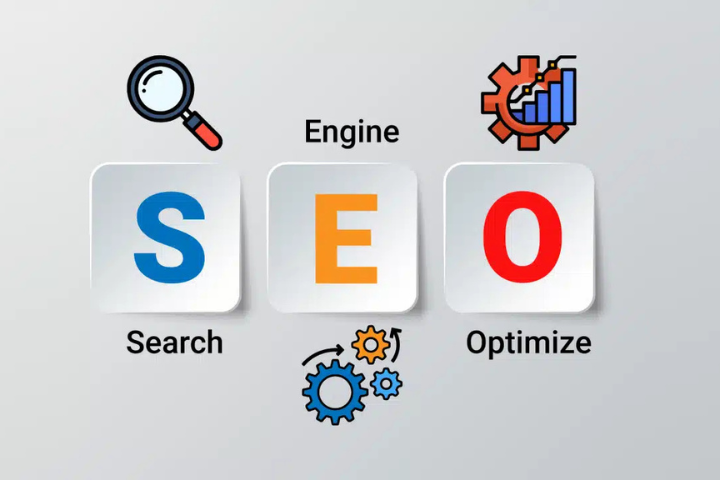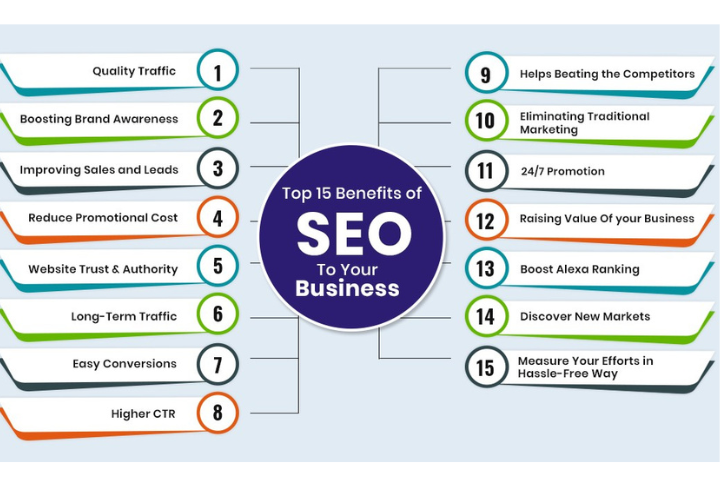The three letters SEO refer to a buzzword, and rightfully so. Investment in SEO can mean long-term sustained growth and increased traffic to your website or eCommerce site. However, SEO is not an instant solution. CEOs want their marketing executives to spend time and money on pay-per-click advertising. Yet once the funding stops for these PPC campaigns, so does the campaign. On the other hand, SEO will keep growing. This is where a virtual SEO assistant can come in and assist you.

What is SEO?
SEO is the acronym for search engine optimization. This term is relatively recent; however, SEO is millennial. This is because SEO dates back to the 1990s. In 1996, SEO took off. It’s used to drive a higher site ranking on search engines.
Moreover, this massive push to be in the top three search results relates to more clicks. For instance, the first search result would achieve 30% of the search traffic. The second search result will achieve 16% of the search results. The lower you go, the more dramatically the search results drop. More so, being on Page 2 or the tenth search result means almost no traffic to your site, no matter how great your product might be. SEO optimization can help you climb the rankings and gain more traffic for your website.
Hire a virtual SEO assistant.
Hiring a virtual SEO assistant is an alternative to hiring an SEO expert. Businesses hire an SEO virtual assistant mainly due to cost benefits, but using a virtual assistant allows the company to be flexible. As the company scales, the business can spend more on SEO.
This is particularly useful for small- to medium-sized businesses, especially businesses dependent on website traffic. The virtual SEO assistant will conduct various tasks, from keyword research to fixing site structure.

The various tasks of a virtual SEO assistant
Keyword Research
Adding random words will not give you the search results you are looking for. You should know which keywords to use for your product or service, the market you want to attract, and which keyword strategy would be best for your position versus your competitors. Here, the remote assistant will build a buyer persona and relate keywords to it. These keywords will also relate to the best search intent of these theoretical buyer personas.
User experience and usability
Search engines like Google or Bing would also reflect user experience (UX) and usability when determining rankings. To demonstrate to Google that visitors want to spend time on your eCommerce site or website, you must have excellent content that retains users for as long as possible. Your content must also encourage these website visitors to visit your other pages, not only the home page.
A virtual SEO assistant will modify your website to ensure this occurs. This assistant will refine the layout and navigation, increase load speed, and check that the website loads correctly on all screen sizes and device types.
Site structure
To handle your site structure, your remote assistant will unify the website pages logically, including grouping information under topics. This will assist users in navigating your website more easily, ensure they find the information they seek, and keep them on your website for an extended time.
In addition, site structure is essential to search engines. A site structure informs seekers of what your website is about. Moreover, the structure indicates which pages have similar topics and which are the most essential.
Metadata
Regarding on-site SEO, metadata is part of the HTML on web pages. Metadata is beneficial for search engines when interpreting page content. Your remote assistant should ensure that each web page has the critical meta tags, meta content type, meta description, viewport, and title.
If your site is older than about 15 years, it could have dated meta tags that might be irrelevant. Your virtual SEO assistant would be able to update these and add extra keywords for the meta tags to increase searchability.
Content optimization
More than just landing pages, content such as blogs must be optimized. The virtual assistant will review the content to ensure that the URLs and keywords are good, that the images have an ALT tag, and that the meta tag has been added.
Additionally, the assistant will ensure that the pages have outbound and inbound links, no broken links, and that the H1 structure is correctly applied. The assistant can also review the content, tailor it to the target market, or make necessary changes.
Canonical Links
It is common sense to have identical content on other pages now and then. In the past, search engines flagged these pages as duplicate content. Search engines track down fresh, unique, and high-quality content; duplicated content is viewed negatively.
This could negatively impact the page rankings. However, this can be corrected by adding canonical links to lower-level pages. As such, search engines will merely index the preferred pages and ignore the others, boosting your SEO.
Google Analytics
A web analytics tool like Google Analytics helps gather user demographics and behavior data. A virtual assistant can set up a Google Analytics account and begin collecting data and compiling reports that can be used to enhance SEO.
Off-site SEO
Off-site SEO is equally significant as on-site SEO. It encompasses a wide range of activities. The virtual assistant can handle all of this, including link building.
Online Directories
One link-building strategy is to make use of online directories. Online directories are the modern equivalent of an old-fashioned phone book. Business details are listed to assist local clients seeking services and products in your niche.
However, not all online directories are worth listing; some can damage your ranking. The virtual SEO assistant will be able to identify better options based on relevance or domain authority.
Guest blogging
Another link-building strategy is guest blogging. Here, you write a blog post, which will be posted on another website, ideally with a high domain authority. A few links will be added to the post that direct the reader to your website. This also helps to drive traffic to your website, especially in a new market, which can help your brand’s visibility.
Here, a virtual content writer searching for good websites can support the virtual assistant by writing blog posts, editing these posts, and correcting broken links. Fixing broken links is also key to ensuring your SEO efforts are not hampered.
YouTube marketing
You need a YouTube channel when video marketing is part of your strategy. In addition, videos can be embedded into your site and hosted on YouTube, which will help your site not slow down. The virtual assistant can optimize the titles, write the descriptions using keywords, add custom thumbnails, and add call-to-actions to the videos.
Competitor analysis
Your virtual SEO assistant can scrutinize what your rivals are up to regarding their SEO. Here, you can gauge what needs to be improved to beat the competition. This is more of a long-term strategy, and it’s more important to have all your elements in order before you start comparing.

The bottom line: What can a Virtual SEO Assistant do for your Business?
SEO efforts are essential because they boost traffic to your website. However, it is also key to have a low bounce rate. This means you must have relevant information to attract your market and not attract the incorrect audience to your site, since they will leave. Leaving your site will increase your bounce rate, which you don’t want.
Moreover, SEO takes time – around 3 months to show some effect. And you need to be consistent – even if you do not see results initially, trust the process. The results will come.

